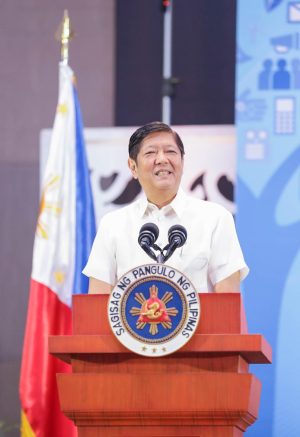Despite the COVID-19 pandemic and other public health concerns, Philippine President Ferdinand Marcos Jr. has yet to appoint a permanent secretary of the Department of Health (DOH).
After assuming power on July 1, he designated one of the undersecretaries of the previous government as DOH officer-in-charge (OIC). Three months later, the Marcos cabinet is complete except for the DOH, which is still headed by an OIC.
Marcos knows the importance of leading an agency to tackle a particular crisis. It’s the reason why he appointed himself as agriculture secretary while the country is battling a food security problem.
“There are things that the president can do that a secretary cannot, especially because the problems are so difficult that it would take a president to change and turn it around,” Marcos said in a recent interview.
If leadership is crucial in managing an emergency situation, then why leave the DOH in the hands of a mere OIC? What is stopping the president from appointing a permanent health secretary?
His response has been vague and even incoherent.
During his first one-on-one interview in September, he explained his reason for holding back in naming someone to lead the DOH.
“There are many other elements to the DOH. That’s why until we finalize the structure of what – we just have to keep it functioning and finalize the structure.” He added that the permanent secretary will be the “person who is helping us, the consultants from there, the consultants that are helping us, putting the new structure of the DOH together.”
After the media asked him again about this issue in October, he said he is waiting for the health situation to normalize. “[F]or now, I say, we are looking for ways so that we can normalize [the situation] and we don’t have to say that the Philippines is still in a state of calamity.”
Instead of elaborating this point, he simply mentioned that the government is trying to fix something in the bureaucracy.
“I want people to understand that this is the government’s work, not everything is a crisis… That is what I am trying to do. So that every day functions are fulfilled every day, without fuss, without bother, without fixers, without paying.”
This confused many because a permanent DOH secretary would have expedited the reorganization of the agency.
Senate Minority Leader Aquilino Pimentel advised Marcos to immediately appoint a health secretary. “Someone who shares the same thinking he just explained. Get an outsider if necessary. But show and shower him or her with all the support for us to be able to ‘live with the virus,'” Pimentel told the media.
The vacancy at the DOH became more pronounced after Marcos appointed a retired police general as health undersecretary. Responding to criticism that he chose someone with no health expertise, Marcos said the country’s former police chief will look into the “special concerns” and other functions of the DOH like rightsizing and structural changes. He said that one does not need to be a doctor to make an “administrative audit” of the agency.
Nevertheless, the agency is still functioning without a permanent secretary. Some health experts believe Marcos is satisfied with the performance of the OIC. But if this were the case, why the reluctance in making her appointment permanent?
Professor Peter Julian Cayton of the University of the Philippines noted that an OIC is prevented from making substantial reform proposals.
“An OIC is a temporary position that cannot make major reforms or decisions. She is only able to continue recurring programs and repeat decisions. She cannot start new policies since she is not DOH Secretary, she is only temporary until a real secretary sits,” Cayton told the media.
Marcos’ failure to name his DOH secretary was cited by health workers as a major concern in grading the first 100 days of the new government. They reiterated some of their demands such as additional benefits and better working conditions. The Health Alliance for Democracy (HEAD) has expressed disappointment that instead of appointing a DOH secretary, Marcos placed a retired general in the agency, and warned that it could lead to the “militarization of health services.”
“We need qualified health officials not only with medical and health expertise, but more importantly imbued with service orientation and proven track record of upholding the health workers’ and people’s right to health,” said HEAD in a statement as it highlighted the notorious record of the new DOH undersecretary in implementing the previous government’s bloody “war on drugs.”

































